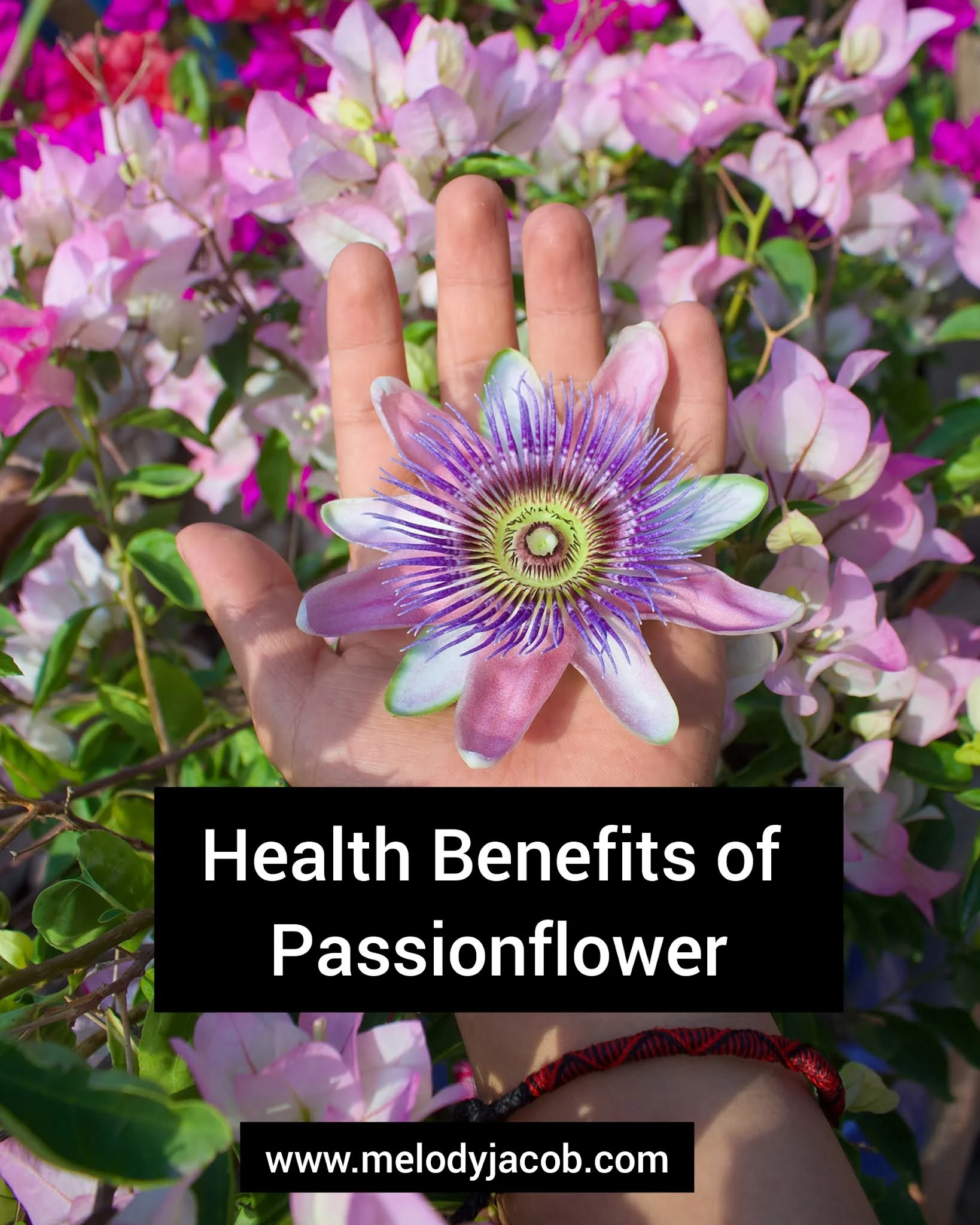Passionflower is a well-known natural treatment used throughout the world for its calming and relaxing effects.
Passionflower is a native of the Americas, more precisely tropical southeastern North America. It is a member of the Passiflora family of plants. It is a climbing vine that thrives in Europe, Asia, and a variety of other locations worldwide.
Passionflower was given the name Passion by Roman Catholic Priests in the late 1500s because it resembled the cross of Christ, whose final earthly days are referred to as The Passion.
Passiflora incarnata is the most often utilized species of passionflower in nutritional supplements and natural health cures, with over 500 species.
Passionflower's History
Passiflora has been utilized as a folk treatment by numerous cultures throughout the world. Herbalists in South America were familiar with it, and it was found in 1569 by a Spanish physician named Monardes. In 1633, Jesuit Ferrari authored De Florum Cultura, in which he depicted Passiflora and its different components as a symbol of Christ's Passion. He described the three-lobed leaves as a spear, the ovaries as a chalice, and the five stamens as five wounds.
The Latin term for passionflower was given by the Jesuits: passion, which means pain, floss, which means flower, and incarnate, which means 'to create flesh,' or rebirth. As a result, the name Passiflora incarnata was derived.
Passionflower was utilized as a nerve relaxant in American homoeopathy during World War I, as well as in Brazilian folk medicine and Native American medicine for boils and wounds. It has long been used to cure restlessness throughout Europe.
Passiflora has a long and illustrious history of medical use in both the past and now. Empirical evidence, as well as a range of clinical research investigations, support its usage as a medicine.
1. Anxiety Alleviation
A study on preoperative patients discovered that oral Passiflora incarnata alleviates anxiety in people scheduled for surgery. The researchers discovered that giving oral passionflower to patients before outpatient surgery operations lowered anxiety without sedating them.
Another study discovered that passionflower was beneficial in the treatment of people with a generalized anxiety disorder (GAD). The effects of Passiflora were compared to those of oxazepam, a commonly used medicine to treat GAD. They determined that both Passiflora incarnata and oxazepam were successful in treating GAD and that there was no significant difference between the two procedures. However, there were significantly greater difficulties in the oxazepam group relating to impairment of job performance.
While traditional medicine has long utilized Passiflora to alleviate anxiety, recent scientific study is confirming the validity of this well-known anxiolytic herbal therapy.
2. Sleep
Consuming passionflower tea has been shown to improve sleep quality in healthy persons. Participants drank purple passionflower each night for seven days in this study. The participants reported improved sleep quality after a week of Passiflora tea drinking.
Additional research on the benefits of Passiflora incarnata on sleep indicated that it dramatically increased total sleep time when administered to rats. Following that, the researchers found that passionflower extracts are effective sleep aids.
Passionflower promotes sleep by increasing gamma-aminobutyric acid (GABA) levels in the brain. GABA may aid in improving sleep quality by lowering brain activity.
3. ADHD
A brief study on children with attention-deficit hyperactivity disorder was undertaken by a psychiatric research facility (ADHD). They gave the children passionflower tablets for eight weeks. The findings suggest that they may be a potential therapeutic agent for ADHD. Passiflora's moderate side effect profile was also cited as a benefit in the study.
Given Passiflora's tendency to calm, it's easy to see how it could aid a hyperactive child or adult with ADHD. The sedative properties of passionflower would naturally help to calm hyperactivity and alleviate symptoms associated with ADHD.
4. Gut Health
While Passiflora incarnata is calming and sedating, two other Passiflora strains have been shown to offer stomach-soothing qualities.
Thus far, the benefits of gut health have been established only in rats, as no human studies have been published. Nonetheless, evidence indicates that these supplements may have beneficial effects on digestive health.
When Passiflora serratodigitata extract was utilized to treat ulcers in rats, favorable results were seen. Similarly, Passiflora foetida was discovered to be beneficial in the treatment of ulcers in laboratory mice.
5. Seizures
In a clinical investigation, anticonvulsant effects were reported in mice treated with a drug that induces seizures. Additional research is needed to confirm these findings, but they are a positive indication that Passiflora may be a viable therapy choice for seizure patients.
The Proper Use of Passionflower
Passionflower is available as a liquid tincture. A tincture is a herbal extract that is often dissolved in alcohol. Numerous companies produce glycerin-based remedies for those who wish to abstain from alcohol.
Passionflower tea is another popular approach to benefit from Passiflora's relaxing properties. Before night, a warm cup of tea can be comforting while also promoting better sleep.
Finally, capsules are a practical and portable way to consume passionflower.
As usual, consult your physician before beginning to use passionflower or any other new herbal supplement.
Passionflower Risks and Side Effects
While passionflower is generally regarded harmless, it might cause dizziness, disorientation, and drowsiness.
Due to the possibility of these adverse reactions, it should not be used before driving or operating heavy machinery. Avoid combined use of passionflower and other sedatives. Take this medication only if you are not pregnant or breastfeeding, as it may trigger uterine contractions.

